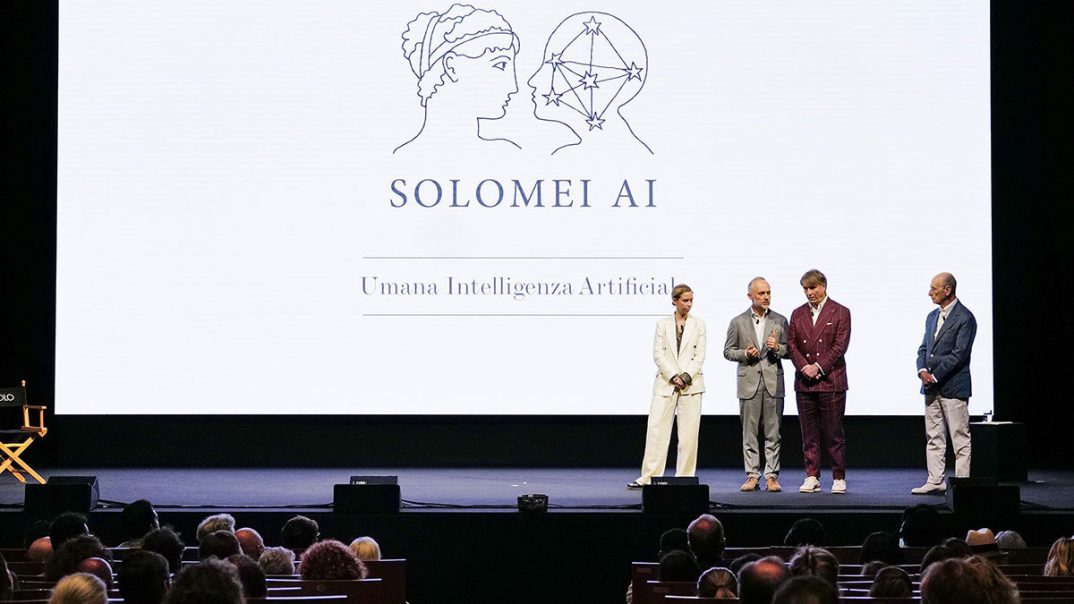Solomei AI and the new site are in some ways the product of that. The site was created by a dedicated group of researchers from the fields of mathematics, engineering, art and philosophy; Hoffman provided some feedback. “In fact he was the first to see it,” says Francesco Bottigliero, chief of humanistic technology at Brunello Cucinelli, a role he took on in April 2023. “He told us two things: ‘First, it looks quite new. I haven’t seen anything like that. Second, move fast.’ That’s why we said mid-July, we are going to launch it — even if it’s 95 per cent ready, even if it is in beta.”
Brunello Cucinelli — a brand that specialises in highly tactile luxury like fine cashmere, lambskin and wool — is emphasising the human element of its AI offering. It’s positioning it as “human artificial intelligence” and says the project “brings out the best qualities” of both, according to a release. The elevated approach to AI is fitting, as customers who purchase its $4,000 blazers or $10,000 shearling ponchos will be looking for something high-touch. The brand has been resonating in the quiet luxury boom: it crossed its €1 billion target in January and is also a fan favourite among Silicon Valley’s tech set, who rotate Brunello Cucinelli among their uniforms.
“The intent is to unite human genius and the power of artificial intelligence,” says Bottigliero. “We imagined a new generation of websites, which is giving up with the page and creating an experience for the visitors live.” Cucinelli demoed it on stage, asking questions like: what is humanistic capitalism? What does Brunello mean by human sustainability? (Part of the AI-generated answer to the latter reads, “His philosophy is rooted in a deep respect for creation and human dignity, believing that sustainability should extend beyond mere environmental concerns to include cultural, spiritual and moral dimensions.”)
Fashion brands like Zegna have already experimented with AI shopping recommendations. Within one year, the Brunello Cucinelli team expects to crossover the AI tool with e-commerce; AI can help generate ideas for outfit combinations, for example. Bottigliero offers a potential customer prompt: “I’m going to an important business meeting. I have a blue blazer by Brunello Cucinelli. Which kind of shirt should I wear?”
“And in that case, it will switch to the e-commerce site, it will give advice and create the product listing pages,” he says. The executive also noted that AI-produced looks doesn’t mean AI-produced imagery. “We like real pictures.”
So why the bet on AI? “The first reason is to make sure that everybody that works with me is not afraid of AI,” Cucinelli says. “I think that people in the next 500 years will remember this century because of AI.”
“[The site] is a starting point,” Carolina Cucinelli, Brunello’s daughter and the company’s executive director and vice president, tells Vogue Business after the conference.
Comments, questions or feedback? Email us at feedback@voguebusiness.com.
More from this author:
Richemont weathers luxury slump in Q1
Why Cartier brought its Trinity celebrations to Singapore
How CEO Michelle Gass plans to turn Levi’s into a $10 billion business





